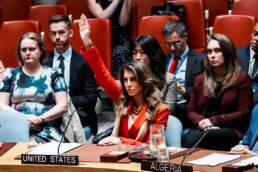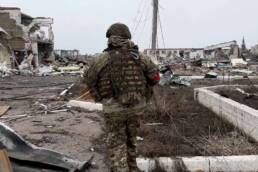المصادر:
(*) نُشرت هذه الدراسة في مجلة المستقبل العربي العدد 469 في آذار/مارس 2018.
(**) شريف عبد الرحمن: مدرس في قسم الحوسبة الاجتماعية، كلية الاقتصاد والعلوم السياسية، جامعة القاهرة.
البريد الإلكتروني: sseif@feps.edu.eg
[1] Information and Communication Technology.
سوف تستخدم هذه الدراسة تعبيرات الثورة الرقمية، ثورة المعلومات والاتصالات، الانفجار الرقمي، بالتبادل، على افتراض أنها تعكس مضموناً متقارباً.
[2] Heather Brooke, «Inside the Digital Revolution,» Journal of International Affairs, vol. 70, no. 1 (2016), p. 2; Robert O’Harrow, Jr., No Place to Hide (New York: Free Press, 2005), and Amitai Etzioni, Privacy in a Cyber-Age: Policy and Practice (New York: Palgrave Macmillan, 2015), p. 520.
[3] Christian Fuchs [et al.], eds., Internet and Surveillance: The Challenges of Web 2.0 and Social Media (London: Routledge, 2011), p. 13.
[4] Salvatore J. Stolfo [et al.], eds., Insider Attack and Cyber Security: Beyond the Hacker (New York: Springer, 2008), p. 54.
[5] Peter Ludlow, «Wikileaks and Hacktivist Culture,» The Nation (October 2010), <https://www.thenation.com/article/wikileaks-and-hacktivist-culture/>.
[6] لمراجعة نماذج من هذه المواقف، انظر: عزمي بشارة، «الحقيقة والسلطة وإعادة الاعتبار إلى الحقيقة،» في: هدى حوا، محرر، ظاهرة ويكيليكس: جدل الإعلام والسياسة بين الافتراضي والواقعي (الدوحة: المركز العربي للأبحاث ودراسة السياسات، 2012)، ص 50 – 52.
[7] انظر: Athina Karatzogianni, Firebrand Waves of Digital Activism, 1994–2014: The Rise and Spread of Hacktivism and Cyber Conflict (New York: Palgrave Macmillan, 2014), p. 67.
[8] Derrick L. Cogburn, «Enabling Effective Multi-stakeholder Participation in Global Internet Governance through Accessible Cyber-Infrastructure,» in: Andrew Chadwick and Philip N. Howard, eds., Routledge Handbook of Internet Politics (Oxon: Routledge, 2009).
[9] Kathleen M. Eisenhardt, «Building Theories from Case Study Research,» The Academy of Management Review, vol. 14, no. 4 (October 1989), pp. 532‑550.
[10] Roger K. Yin, Case Study Research: Design and Methods (Thousand Oaks, CA: Sage, 1994).
[11] Frank Esser and Barbara Pfetsch, eds., Comparing Political Communication: Theories, Cases, and Challenges (New York: Cambridge University Press, 2004), p. 190.
[12] Asef Bayat, Life as Politics: How Ordinary People Change the Middle East? (Amsterdam: Amsterdam University Press, 2010), p. 6.
[13] المصدر نفسه.
[14] يشار إليه في سياقات موازية باسم الفضاء السيبراني والفضاء الرقمي ومجتمع المعلومات والمجتمع الافتراضي، على الرغم من وجود فروقات دقيقة فيما بين كل من هذه المصطلحات. لمراجعتها، انظر: دارن بارني، المجتمع الشبكي، ترجمة أنور الجمعاوي، سلسلة ترجمان (الدوحة: المركز العربي للأبحاث ودراسة السياسات، 2015). إلى هذا فإن البعض يدمج ما بين فضاء ويستفاليا والفضاء الافتراضي، ويزعم أن الفضاء الافتراضي سوف يكتسب خلال العقود القادمة عدداً من خصائص فضاء ويستفاليا التقليدي، انظر: Chris C. Demchak and Peter J. Dombrowski, «Rise of a Cybered Westphalian Age: The Coming Decades,» Strategic Studies Quarterly, vol. 5, no. 1 (2014), pp. 31–62.
[15] Jan-Frederik Kremer and Benedikt Müller, eds., Cyberspace and International Relations: Theory, Prospects and Challenges (New York: Springer, 2014), p. v.
[16] Ronald J. Deibert, «Circuits of Power: Security in The Internet Environment,» in: James N. Rosenau, ed., Information Technologies and Global Politics: The Changing Scope of Power and Governance (New York: State University of New York, 2012), p. 119.
[17] Simon Nora and Alain Minc, The Computerization of Society, introduction by Daniel Bell (Cambridge, MA: MIT Press, 1981).
[18] Manuel Castells, ed., The Network Society: A Cross-Cultural Perspective (Cambridge, MA: Edward Elgar, 2004), p.5.
[19] Sean P. Larkin, «The Age of Transparency: International Relations without Secrets,» Foreign Policy, vol. 95, no. 3 (May-June 2016), <https://www.foreignaffairs.com/articles/world/2016‑04‑18/age-transparency>.
[20] زيغمونت باومان وديفيد ليون، المراقبة السائلة، تقديم هبة رؤوف؛ ترجمة حجاج أبو جبر (بيروت: الشبكة العربية للأبحاث والنشر، 2017)، ص 12.
[21] Andy Greenberg, «How the NSA Could Bug Your Powered-Off IPhone, and How to Stop Them?,» <https://www.wired.com/2014/06/nsa-bug-iphone/>.
[22] هال أبلسون، هاري لويس وكين ليدين، الطوفان الرقمي: كيف يؤثر على حياتنا وحريتنا وسعادتنا، ترجمة أشرف عامر؛ مراجعة فتحي خضر (القاهرة: مؤسسة هنداوي للتعليم والثقافة، 2014)، ص 42.
[23] J. K. Petersen, Handbook of Surveillance Technologies, 3rd ed. (Boca Raton, FL: CRC Press, 2012), p. 7.
[24] Larkin, «The Age of Transparency: International Relations without Secrets».
[25] المصدر نفسه.
[26] International Commission on Missing Persons, «ICMP Finds Improved Methods for Locating Mass Graves,» <https://www.icmp.int/press-releases/icmp-finds-improved-methods-for-locating-mass-graves/>
[27] انظر: بشارة، «الحقيقة والسلطة وإعادة الاعتبار إلى الحقيقة،» ص 54.
[28] يعتبر البعض أن التسريبات التي شغلت الوطن العربي أكثر من غيرها كانت التي قام بها البلاشفة بخصوص ممارسات العهد القيصري، وخصوصاً اتفاقيات الدول الاستعمارية لتقسيم الدول التي كانت خاضعة لسلطانها، وأبرزها اتفاقات سايكس بيكو.
[29] Seymour M. Hersh, «Torture at Abu Ghraib,» New Yorker (10 May 2004), <http://www.newyorker.com/magazine/2004/05/10/torture-at-abu-ghraib>.
[30] Collateral Murder, <https://collateralmurder.wikileaks.org/>.
[31] Massimo Calabresi, «WikiLeaks’ War on Secrecy: Truth’s Consequences,» Time Magazine (2 December 2010), Retrieved 3 December 2011, <http://www.time.com/time/magazine/article/0,9171,2034488,00.html>.
[32] <https://www.wikileaks.org/wiki/WikiLeaks:About>.
[33] المصدر نفسه.
[34] المصدر نفسه.
[35] محلل استخباري أمريكي، قام بتسريب عدد هائل من الوثائق السرية لويكيليكس، أدين في العام 2013، وحكم عليه بالحبس لـ 35 عاماً، قبل أن يتم تخفيف الحكم عليه (ومن ثم الإفراج عنه) في إطار عفو رئاسي أصدره أوباما بحقه قبل نهاية فترته الرئاسية الثانية. انظر: Charlie Savage, «Obama Commutes Bulk of Chelsea Manning’s Sentence,» The New York Times, 17/1/2017, <https://www.nytimes.com/2017/01/17/us/politics/obama-commutes-bulk-of-chelsea-mannings-sentence.html>.
[36] «Collateral Murder,» <https://collateralmurder.wikileaks.org/>.
[37] Elisabeth Bumiller, «Video Shows U.S. Killing of Reuters Employees,» The New York Times, 5/4/2010, <http://www.nytimes.com/2010/04/06/world/middleeast/06baghdad.html>.
[38] «Afghan War Diary,» <https://wikileaks.org/afg/>.
[39] «Iraq War Logs,» <https://wikileaks.org/irq/>.
[40] «WikiLeaks Secret US Embassy Cables,» <https://wikileaks.org/plusd/?qproject[]=cg&q=#result>.
[41] «WikiLeaks Reveals Secret Files on All Guantánamo Prisoners,» <https://wikileaks.org/gitmo/>.
[42] Benedetta Brevini and Graham Murdock, «Following the Money: WikiLeaks and the Political Economy of Disclosure,» in: Benedetta Brevini, Arne Hintz and Patrick McCurdy, eds., Beyond WikiLeaks: Implications for the Future of Communications, Journalism and Society (New York: Palgrave Macmillan, 2013), p. 50.
[43] Jayshree Bajoria, «How WikiLeaks Affects Journalism,» Interview by C. W. Anderson, Council on Foreign Relation (23 December 2010), <https://www.cfr.org/interview/how-wikileaks-affects-journalism>.
[44] «WikiLeaks’ Spokesman: We Have «Changed the Landscape of the Media»,» Radio Free Europe, Radio Liberty (15 March 2011), <https://www.rferl.org/a/wikileaks_interview_transparency_spokesman_hrafnsson/2338896.html>.
[45] Calabresi, «WikiLeaks’ War on Secrecy: Truth’s Consequences».
[46] Raffi Khatchadourian, «No Secrets: Julian Assange’s Mission for Total Transparency,» The New Yorker (7 June 2010), <https://www.newyorker.com/magazine/2010/06/07/no-secrets>.
[47] بشارة، «الحقيقة والسلطة وإعادة الاعتبار إلى الحقيقة،» ص 70.
[48] المصدر نفسه، ص 74.
[49] John Fiske, Media Matters: Everyday Culture and Political Change (Minneapolis, MN: University of Minnesota Press, 1996), p. 246.
[50] بشارة، المصدر نفسه، ص 53.
[51] Bill Keller, «Dealing with Assange and the WikiLeaks Secrets,» The New York Times, 26/1/2011, <http://www.nytimes.com/2011/01/30/magazine/30Wikileaks-t.html?pagewanted=all>.
[52] Stefania Milan, «WikiLeaks, Anonymous, and the Exercise of Individuality: Protesting in the Cloud,» in: Brevini, Hintz and McCurdy, eds., Beyond WikiLeaks: Implications for the Future of Communications, Journalism and Society, p. 193.
[53] Keller, Ibid.
[54] Philip N. Howard, The Digital Origins of Dictatorship and Democracy Information Technology and Political Islam (New York: Oxford University Press, 2010), p. 145.
[55] Haggerty Kevin, «Tear down the Walls: On Demolishing the Panopticon,» in: David Lyon, ed., Theorizing Surveillance: The Panopticon and Beyond (Portland, OR: Willan Publishing, 2006), pp. 23–45.
بدعمكم نستمر
إدعم مركز دراسات الوحدة العربية
ينتظر المركز من أصدقائه وقرائه ومحبِّيه في هذه المرحلة الوقوف إلى جانبه من خلال طلب منشوراته وتسديد ثمنها بالعملة الصعبة نقداً، أو حتى تقديم بعض التبرعات النقدية لتعزيز قدرته على الصمود والاستمرار في مسيرته العلمية والبحثية المستقلة والموضوعية والملتزمة بقضايا الأرض والإنسان في مختلف أرجاء الوطن العربي.



